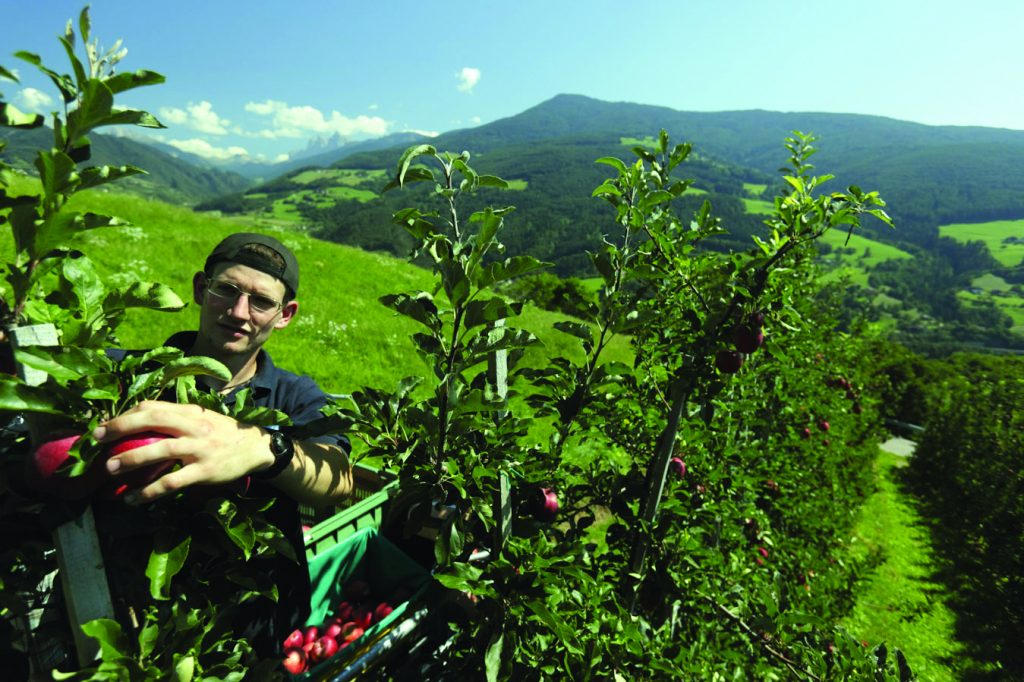VI.P: a commitment to the environment
The Italian leaders put forward a philosophy that goes above and beyond their organic line to become a significant benchmark, while Europe increases its production to 24,000 tons.
The Val Venosta Association of Horticultural Cooperatives, VI.P, has a characteristic integrated production system that is very environmentally friendly. This product line includes over 10 varieties of organic apples, most notably Golden Delicious (almost 50% of production), Gala and Pinova.
The 132 organic farmers in the cooperative comply with the EU’s Regulation 834/2007 governing organic production. Furthermore, they are all members of the German associations Bioland and/or Demeter, which regulate organic farming with more stringent guidelines than the above regulation. This is why Val Venosta’s organic produce exceeds European standards of quality, cultivated exclusively with natural techniques and organic fertilizers, with no synthetic anti-pest products, fertilizers or herbicides. In addition, they use soil management methods with a low environmental impact to conserve and enhance soil fertility and plant resistance. All of this leads to more sustainable farming and more natural production.
To ensure these methods are followed, Val Venosta’s organic apples are produced applying strict controls and a thorough traceability system. Part of the consortium is a partner to Bio mit Gesicht (Bio with a face), so every package can be marked with a code on demand that the consumer may use in the internet to find all the information about the apple, the farmer and their farm (www.bio-mit-gesicht.com).
Val Venosta: sustainable production
In addition to implementing cultivation techniques and technologies that are environment ally friendly, all of Val Venosta’s apples are voluntarily subject to the EPD (Environmental Product Declaration), an internationally valid certification that verifies each of the stages in producing the apple so as to minimise CO2 emissions into the environment. One of the steps to reduce the environmental impact that affects the production phase is the installation of new photovoltaic systems on the cooperatives’ roofs that enable them to significantly reduce power consumption. This season, the area of solar panels has increased to 60,000 m² with the capacity to produce 10.8 million kWh a year. This is a reduction of 5,700 tonnes of CO2—another example of VI.P’s work to minimize its environmental impact. MV


